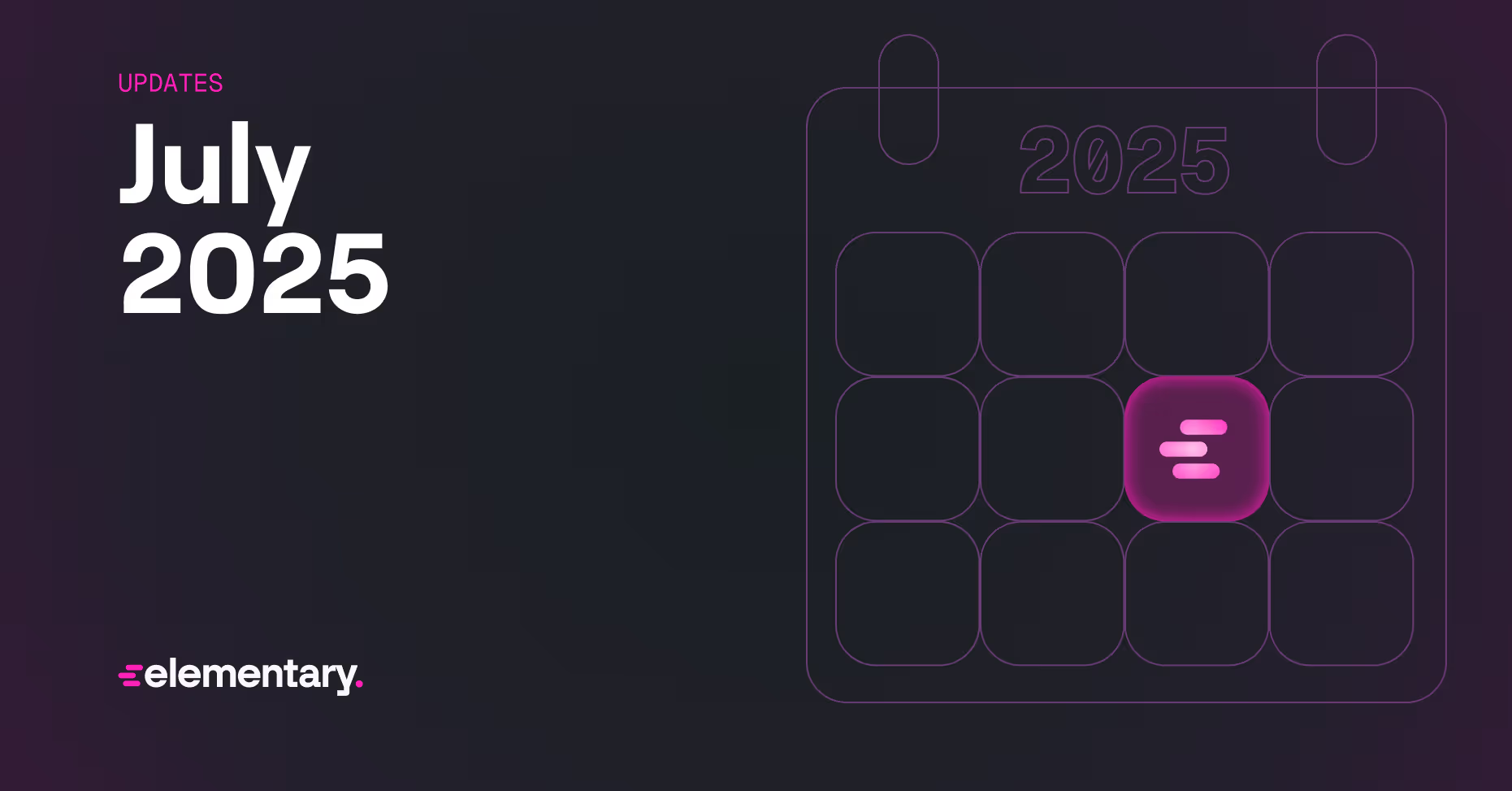Every month, we focus on the same goal: making observability fit naturally into your workflows — staying in your line of thought while improving it. This July, the highlight is our new MCP Server, which brings Elementary into AI-native environments, alongside steady improvements to alerting, coverage views, and anomaly detection. Together, these updates make it easier to scale your efforts, collaborate across teams, and keep your data reliable without disrupting the way you already work.
AI
🧩 Big Release: Elementary’s MCP Server
Elementary now works in MCP-enabled tools like Claude, Cursor, and agent frameworks — letting you explore lineage, view pipeline history, investigate incidents, highlight and fix coverage gaps right from your AI tools.
The MCP Server exposes models, tests, lineage, incidents, and test coverage through a single authenticated endpoint, so you can query your Elementary environment or trigger actions in natural language without leaving your workflow.
Support for managing alerts and Cloud tests is on the way.
- Learn more about the MCP server and various use cases.
- Setup in minutes - Generate a personal token and start using in your own MCP-enabled tools.
- Join our upcoming webinar to see it in action!
🧠 Ella: AI Agents
Ella agents are now smarter, more flexible, and easier to work with:
- Custom Rules: Configure behavior with scoped rules—for example, exclude specific models or tailor detection by team or domain.
- Chat History: Conversations with agents are now persistent, so you can track follow-ups and keep context as you work.
These upgrades make Ella more proactive, more personalized, and easier to integrate into daily workflows.
Catalog
📊 Test Coverage Improvements
The Test Coverage screen in the Elementary Cloud catalog gives you a full picture of your data quality coverage across assets and dimensions. It’s designed to help you quickly understand where you stand — and what needs improvement.
We’ve now added:
- Coverage overview at the top to summarize your coverage by test type (freshness, volume, schema, anomaly, etc.)
- Lineage filters so you can see coverage across entire pipelines and paths
.avif)
⏱️ Last Update Time per Table
You can now see when each table was last updated—directly in the catalog and asset views.
A simple addition that makes freshness and activity easier to track at a glance.
Anomaly detection
✂️ Exclude anomalies from training
You can now remove known anomalies from the anomaly detection training period to improve accuracy and reduce noise.
Mark an incident directly as an anomaly, or manually define time windows to exclude from training. This ensures your ML models are trained on clean patterns—leading to better detection and fewer false positives over time.
Learn more about it here.
Alerts
🔔 Override alert destinations
You can now change where alerts are sent directly from the alert destinations screen. Select a single test or multiple at once and assign them to a different system or channel — without changing the alert rule or dbt code.
Learn more about it here.
New Integrations
🔌 ServiceNow Integration
%20(1).avif)
Elementary now integrates with ServiceNow, so data issues can trigger incidents automatically—just like any other critical system.
Alerts detected by Elementary can be routed, escalated, and tracked natively in your ServiceNow workflows. No more copy-pasting from Slack or screenshots of broken dashboards.
See the full setup guide here.
⏳ dbt Fusion Compatibility (In Progress)
We’re happy to be among dbt’s top 5 packages, and dbt Labs has prioritized a fix to make Elementary compatible with Fusion environments.
We’ve already made the changes on our end and are working closely with the dbt team. We’ll keep you posted as support rolls out more broadly.



